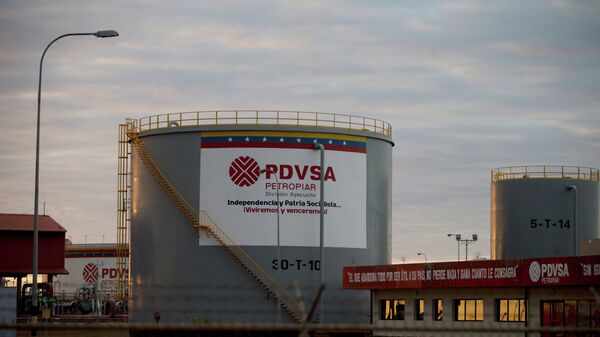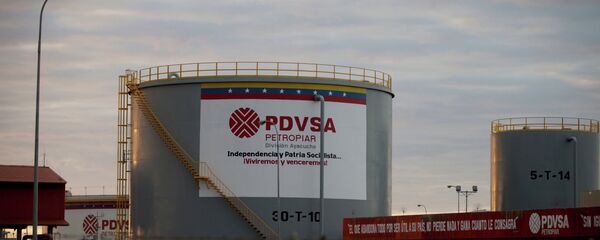In an interview with Reuters, US Special Representative for Venezuela Elliott Abrams called on New Delhi to stop helping the Venezuelan government. Responding to the calls, Indian External Affairs Ministry spokesperson Raveesh Kumar stated that New Delhi would ignore US pressure and continue its trade with Venezuela. Sputnik has discussed the issue with energy specialist Amit Bhandari, a fellow for Energy and Environment Studies at the Mumbai-based policy think tank Gateway House: Indian Council on Global Relations.
Sputnik: What is your take on Mr Abrams’ statement?
Amit Bhandari: We should look at the bigger picture. The bigger picture is that the US has imposed sanctions on the Venezuelan oil industry, the PDVSA.
And this will make a lot of oil companies very reluctant to do business with the PDVSA. So, in the case of India, I think one of the largest buyers of Venezuelan crude is a privately-owned oil company. So, once the sanctions are in place, this company will automatically be reluctant to do business with the PDVSA and that automatically fulfils the purpose of the sanctions.
Sputnik: Do you consider this statement to be pressure on India?
Amit Bhandari: You could say that. They have already announced sanctions on PDVSA. So it is very clear what the US government is looking for.
So, an individual official making this kind of statement – they are restating the message; they are reiterating the message they have already conveyed.
Sputnik: The United States says that India should be on the side of the Venezuelan people and not support the government. Do you think Washington is concerned about Venezuelan citizens and the situation?
We don’t really know what Washington is thinking or what their motivations are. But I think in this case, India also should contribute [to] what is happening in Venezuela. Venezuela is extremely rich in oil and gas. It has more oil than Saudi Arabia.
But the country has done extremely badly economically in the last 10 or 12 years. So, in the normal course of things, this kind of government would have been voted out.
If we look at news reports that have come from Venezuela, at least the impression I get is that there has been some manipulation in the elections. So, in this case, if India continues to buy oil from Venezuela, it does provide financial support to the government. So, this is something which our government has to take a view on, whether we are comfortable doing it or not.
Sputnik: What repercussions could India face?
Amit Bhandari: So, the first thing which happens is that the oil from Venezuela is typically purchased by one of the oil companies; this kind of an oil company relies on large global banks for its financial requirements.
We have seen recently when the Chinese telecom companies ZTE was placed under sanctions by the US government — the stock price collapsed, because the investors feared that the company might not be able to survive.
So, I think any company which comes under American sanctions will find it very hard to continue operating as a viable business. That itself is going to be a big shock for any economy, if one of your large companies sinks.
The second issue India will face is that we are currently in an oil market where demand and supply are fairly evenly balanced. If a large oil exporter such as Venezuela goes out of the world market that is going to push the price of oil for India and for everyone else; this is something that is going to hurt consumers across the world.
Amit Bhandari: Look, Venezuela is one of the big oil suppliers to India. And even if it is not selling oil to India, just having more oil suppliers globally is good for us as an oil importing country. So, that is one.
Secondly, I think the Indian government’s stated position is that we recognise only sanctions which are imposed by the United Nations, not unilateral sanctions imposed by any country. So this is a principled position that India has taken in the past, including with the sanctions on Iran, and also I believe sanctions imposed on Russia.
This is a consistent standard that India has always maintained. We do not recognise unilateral sanctions, even not abide by it. Now, whether an individual company chooses to follow it or not is not something that the government of India can dictate.
Views and opinions expressed in this article are those of Amit Bhandari and do not necessarily reflect those of Sputnik.





